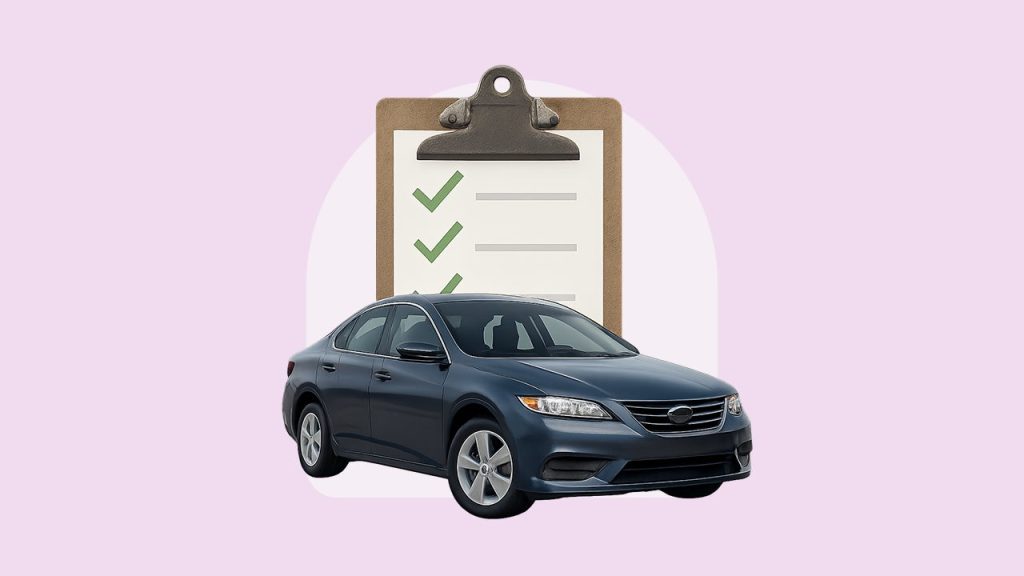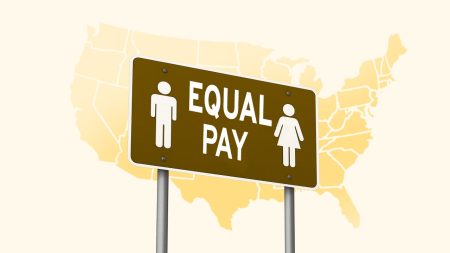How do you shop for car insurance? It seems like a simple question, but the insurance shopping process can quickly become complicated. For drivers navigating it for the first time, buying car insurance is a process full of potential pitfalls, question marks and gray areas. It’s easy to buy insurance; it’s much harder to buy it the right way.
To help new car owners understand the best way to shop for car insurance, I talked to four licensed insurance agents who work for Bankrate and Coverage.com, Bankrate’s trusted shopping partner. They shared insights from their time working with customers as well as their inside knowledge of the industry.
Key takeaways
- You should understand the coverage you’re paying for before you shop.
- Finding a balance between price and product is key.
- You’ll know you have a good price when you have a few quotes in the same range.
- Working with an agent can help you fill in knowledge gaps, access better offers and save both time and money while shopping.
Meet the agents
A.J. Jones has been in the insurance industry for nearly a decade. She specializes in hearing her customers’ needs and customizing policies to make sure that they’re the right fit. Based in the Charlotte, North Carolina, metro region, A.J. audits, reviews and shops policies for customers through Coverage.com, Bankrate’s trusted and preferred partner.

Tyler Williamson is a licensed agent for Coverage.com based in South Carolina, with eight years of experience working with over 30 auto insurance carriers to craft policies that fit drivers’ individual needs.

Natalie Todoroff is one of Bankrate’s insurance analysts, with over 800 publications to date on various insurance topics. She holds a personal lines insurance license in the state of California, which gives her insight on the ins and outs of personal auto insurance shopping.

Shannon Martin is a licensed insurance agent and one of Bankrate’s insurance analysts. With over 16 years of experience in the property and casualty insurance industry in New York State and beyond. Shannon worked for big-name insurers as well as smaller, startup companies before transitioning into a writer and analyst role, where she covers emerging trends in the U.S. insurance industry.
What’s your #1 piece of advice for first-time car insurance buyers?
The first time buying car insurance can be the hardest. It’s also a time when many buyers make mistakes that could cost them for years.
To get a sense of how first-time car owners can avoid overpaying for unreliable insurance, I asked the agents to share their best tips for inexperienced buyers. Tyler and Natalie focused on the importance of understanding what you’re paying for, while Shannon and A.J. had advice for shoppers trying to manage their costs.
Tyler Williamson: Make sure you fully understand your coverage and limits in detail. If the agent doesn’t proactively explain the coverages, then you likely want to look for another.
Natalie Todoroff: This may sound obvious, but the best advice I’d have is to read your policy and get familiar with its different coverage types. You’d be surprised how many people think they’re covered for something, only to get a rude awakening when they go to file a claim. Car insurance may not be something you “use” daily, the way you would a credit card or savings account, but it can be a powerful tool for financial protection. Car accidents and vehicle damage can get expensive quickly, and if you’re caught unprepared, you could be feeling those financial ramifications for years down the line. Plus, understanding what you’re actually getting from your policy can make paying your premium a less bitter pill.
A.J. Jones: SHOP AROUND. Not all carriers are EQUAL, and there is a carrier for EVERYONE. You didn’t buy the first car on the lot, so don’t choose the first carrier that gives you a rate! Compare pricing, and while doing so make sure you’re comparing COVERAGES apples to apples!!!!
Shannon Martin: Be prepared to answer any questions your agent asks honestly. If you have had tickets or accidents in the past, it can be tempting to avoid or “forget” the details in hopes that they won’t show up on your driving record. But 9 times out of 10, the initial affordable quote you received will skyrocket once the credit and motor vehicle reports are back. Then you might be stuck scrambling for enough money to make the initial payment to start the policy.
How can you tell when you’ve got a good price for car insurance?
Real talk: car insurance is the product everyone needs, but nobody wants to pay for. It’s a necessary purchase, but not a fun one, and the cost of auto insurance is constantly rising — which can make it harder to get a gut feeling about what is (and isn’t) a “good” price for insurance.
I asked the agents to give me their tips for knowing when you have a good price. Their answers ranged from practical, concrete tips to more general insights into the role price should play in your shopping process.
Tyler Williamson: When you have 2–3 quotes around the same price range.
Shannon Martin: This is why getting quotes from several carriers is important, especially if it’s the first time you are buying your own policy. While each company will rate your risk factors differently, you should see a few quotes coming in around the same price. Rates that are too high could mean that you aren’t the best fit for that carrier, and rates that are drastically lower from the rest could be missing coverage or benefits you aren’t aware of. Once you narrow it down by price, then you can pick the carrier with the extra benefits you care about the most.
A.J. Jones: Pricing isn’t everything. You want to make sure that you’ve got the RIGHT coverage. Less isn’t more when it comes to insurance. Think Cinderella: you want to make sure you’ve got the right fit. Next to your house, your car is one of your most expensive and important assets; you want to make sure that it’s adequately covered. You wouldn’t put a Band-Aid on a cavity, right? The same goes for coverage for a vehicle — you definitely don’t want liability-only on your brand-new 2025 car just because it’s a lower price. Coverage over pricing, ALWAYS.
Natalie Todoroff: A “good price” for car insurance is subjective. Ultimately, the best price is the one that works with your budget and doesn’t compromise your coverage needs. Cost is, obviously, top of mind when shopping for a policy, but it’s not the only thing to consider. Think about how you want to manage your policy, if you want the option to speak with a live agent, whether there’s 24/7 customer service — things that go beyond just dollars and cents. If your insurance company offers you all the customer service and coverage you’re looking for, but with a slightly higher premium, those added benefits may make the cost worth it to you.
How can you know how much coverage you really need?
Shopping for car insurance can seem fairly straightforward — until you get into the weeds and see the long list of coverage types available. Coverage limits can be tricky as well, especially if you’re intent on saving money. It’s hard to know whether $100,000 or $300,000 in coverage is worth it when you’re trying to keep your bill under $200.
I asked the agents about this dilemma of determining how much coverage you need — one I’ve found myself facing in the past.
Their answer: work with an agent to build your insurance literacy and understand the assets that your insurance needs to protect. There’s no single type and level of coverage that works for every driver’s needs and budget, but every driver needs an understanding of the insurance they buy.
A.J. Jones: EDUCATE yourself on what you actually NEED before shopping. Build a relationship with your agent — a good agent will take the time to sit and empower you with the knowledge between comprehensive (theft, vandalism, or acts of God like a tree falling on your car), and collision (you hitting anything outside of Bambi).
Shannon Martin: Picking the right coverage can be a balancing act between what you can afford and what you really need. Whether your car is financed, or you paid cash for it, if you can’t replace it out of pocket without significant financial strain, you probably need to keep comprehensive and collision coverage. In terms of liability coverage, since it can help protect your current and future earnings, more is better, if you can afford it. The good news is that insurance companies view drivers who carry high liability limits as less risky and more responsible than those with minimal coverage. So, while it costs more for higher limits, the increase can be fairly minimal and is worth quoting at different levels.
Tyler Williamson: We always recommend 50/100 minimum for renters and 100/300 minimum for homeowners. Why does homeownership make a difference? It really just comes down to having more liability to minimize the risk of causing injury higher than the policy limit and possibly having other assets (aka the home) at risk in a lawsuit.
Natalie Todoroff: You might not be able to figure it out all on your own — which is completely fine. That’s exactly what a licensed agent or broker is there to help you with! Working with an industry professional can help you find a balance between robust coverage at a doable price.
We’ve all heard it before: compare, compare, compare when you go to buy car insurance. But at a certain point, the advice can feel hollow. After all, aren’t all of these insurance giants the same?
Not necessarily. Every agent I spoke to reiterated the same point: Not only is it worth it to shop around, but there are ways to make the process easier.
Shannon Martin: Shopping around for the right insurance company can really make a difference in terms of savings and customer service. Younger drivers in particular tend to get quotes from the same insurer as their parents. However, a single 20-year-old has a vastly different risk profile than a married 40-year-old who owns a home. If your parents are with a brick-and-mortar agent who specializes in preferred drivers, you could be paying way too much for insurance. Digital carriers with a diverse risk pool and robust app offerings may provide lower rates and be a better fit in terms of service.
A.J. Jones: Absolutely, totally, and that’s the BEST thing about working with companies like Coverage.com. We take the hassle out of calling a million companies for you; you’re speaking with pragmatic industry professionals that are licensed and trained to find the BEST fit for every situation — and if we don’t have it, we can point you in the right direction.
Tyler Williamson: I always recommend shopping every two years or so to make sure you maintain the best possible option.
Natalie Todoroff: Shopping around for car insurance probably isn’t your idea of a good time, but you’ll be glad you did it. By and large, car insurance companies look at the same things when pricing your policy like your car, driving record, accident history and credit history (in permitted states). What sets insurance companies apart is how they weigh those things to calculate your rate. Shopping around and comparing quotes is one of the best ways to not guess, but know you’re getting a good deal.
Why we ask for feedback
Your feedback helps us improve our content and services. It takes less than a minute to
complete.
Your responses are anonymous and will only be used for improving our website.
Help us improve our content
Read the full article here












